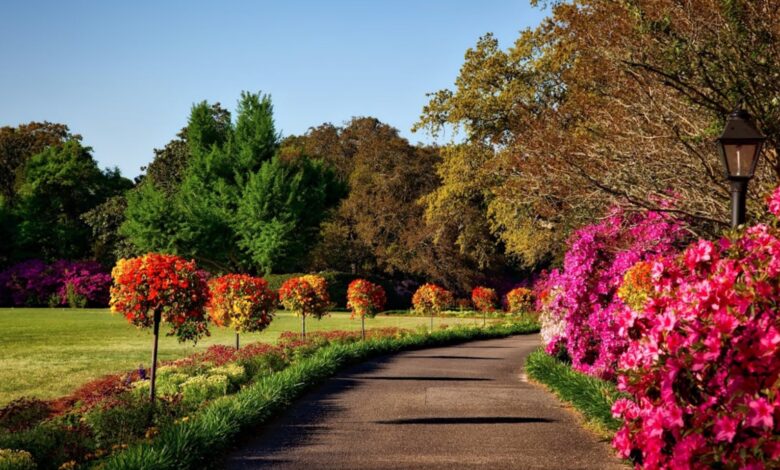Transforming Outdoor Spaces: The Role of Efficient Waste Management in Garden Design
Share

Creating a beautiful outdoor space is a rewarding endeavor that enhances the aesthetics and functionality of your home. Whether you’re designing a cozy backyard retreat or a grand garden landscape, efficient waste management plays a crucial role in the process.
From the initial planning stages to the final touches, proper disposal of waste materials ensures a clean, safe, and sustainable environment. In this post, we will explore the significance of waste management in garden design and how it can transform your outdoor spaces. For those looking for expert services, consider auburn waste disposal solutions to ensure your project is handled efficiently.
The Importance of Waste Management in Garden Design
Some of the activities common in garden design include planting, pruning, and construction, among others, which entail wastage. Most of these can lead to the accumulation of mess or development of safety issues and even cause harm to the environment, especially if there are no well-laid waste management activities. Waste management is not only about cleaning up the garden but also about making an effective way of ensuring sustainable production in your garden without affecting the health of your plants and the soil.
Planning Your Garden with Waste Management in Mind
Design involves creating a plan; therefore, the first stage in any garden design project is planning. This includes the choice of design, plants, and materials to be used, and an approximate measure of the quantities of waste that are expected. Including waste management as part of the initial planning and design phases can help reduce further environmental harm, and the construction process could be easier.
Assessing Waste Types and Quantities
Each gardening project creates a unique form and volume of waste products recognizable to gardeners. For example, a straightforward planting activity may result in organic wastes such as soil, leaves, and branches. At the same time, a significant landscaping undertaking may lead to construction waste like bricks, stones, and Wood. The kind and volumes of expected waste enable you to determine the best way to dispose of them to avoid any mishap.
Incorporating Waste Disposal Solutions
Waste management should also be incorporated when planning the garden design to ensure minimal or proper waste disposal. This may include providing areas for disposing of waste, such as composting for organic waste, providing areas for accumulation of waste, such as construction waste to be evacuated in large quantities, or hiring professional firms to take away large quantities of waste.
Implementing Waste Management Practices During Construction
Construction stage: This is the final step; the construction process follows after developing the garden design plan. Here, waste management practices have to be exercised to avoid going off-track with your project and ensure that your garden is clean.
Segregating Waste
Waste source separation is integral since it makes the disposal and recycling process more accessible. When you sort the organic waste from the other waste, you are in a better position to ensure that materials that need to be composted or recycled are sorted as such. Apart from not having to remove bulky material like leaves, grass clippings, and small branches, composting also contributes to providing nutrients to the garden.
Using Recycled and Sustainable Materials
When designing your garden, it is advisable to use recycled and sustainable materials to eliminate the unnecessary use of plastic and the destruction of the environment. For instance, using upturned timber for outdoor furniture, bricks on walkways, or containers as planting pots can give your yard a rustic look without harming the environment.
Post-Construction Waste Management
However, once the construction is complete, further management to control waste, or the lack thereof, is necessary to keep your garden pristine and healthy. This is because the activities of pruning, mowing, and collecting leaves, among others, create waste that must be disposed of appropriately.
Regular Maintenance and Clean-Up
A proper maintenance and cleaning schedule should be put in place to avoid a garden becoming filled with garbage and other waste materials. This includes the timely raking or clearing of fallen leaves, dead branches, and other debris that may be around. It is always important to clean the garden to make it look better and free from pests and diseases.
Professional Waste Removal Services
One can utilize service providers without difficulty for more extensive waste disposal services. Companies specializing in waste disposal can deal with volumes of organic and inorganic wastes appropriately. This is especially helpful for clearing the yard during springtime or after revamping the garden in a big way.
Conclusion
Waste management is a fundamental aspect of garden design that can beautify spaces, increase functionality, and, most importantly, promote the garden’s sustainability. Some of the steps that can be followed to have a beautiful garden include: The best way to manage waste is to plan for it right from the construction stage, separate waste during construction, and ensure that the garden is cleaned after construction.
If you are looking for total waste management services for your backyard gardening project, you should get professional service from Auburn Waste Disposal Solutions to get the job done effectively and in an environmentally friendly manner. Therefore, waste management is crucial when creating a clean and natural environment in which to sit back outdoors.



